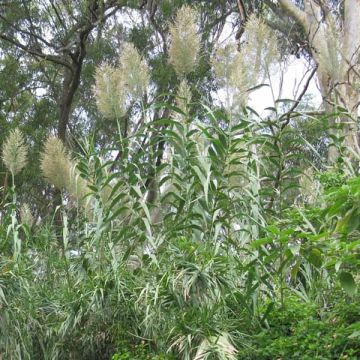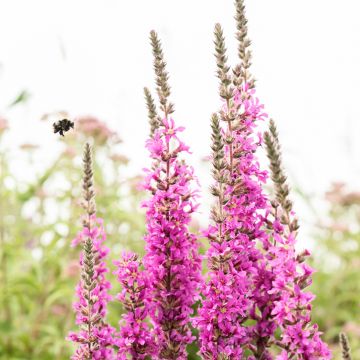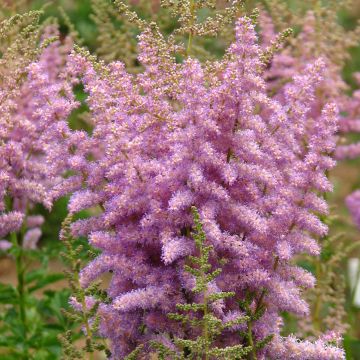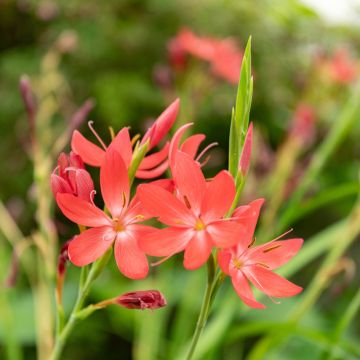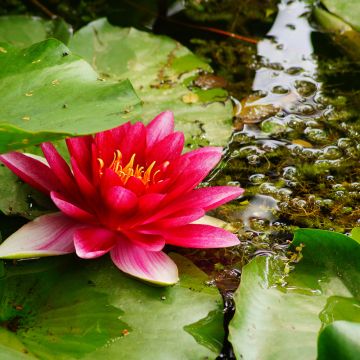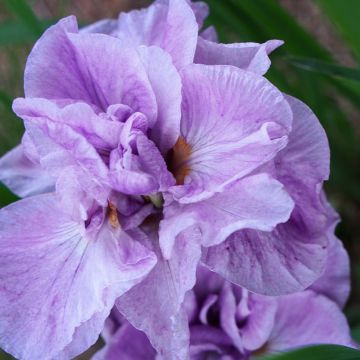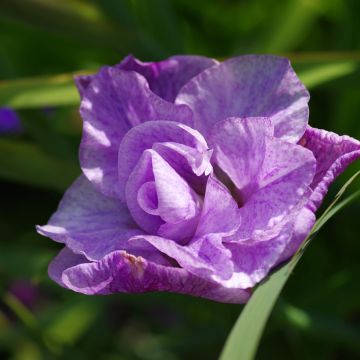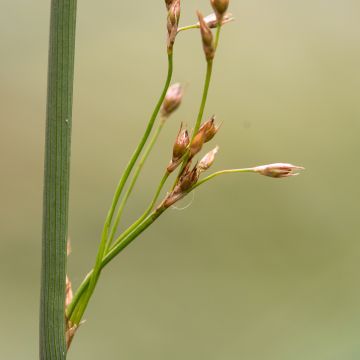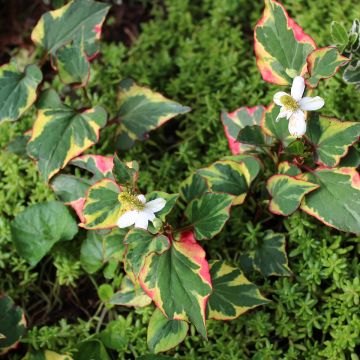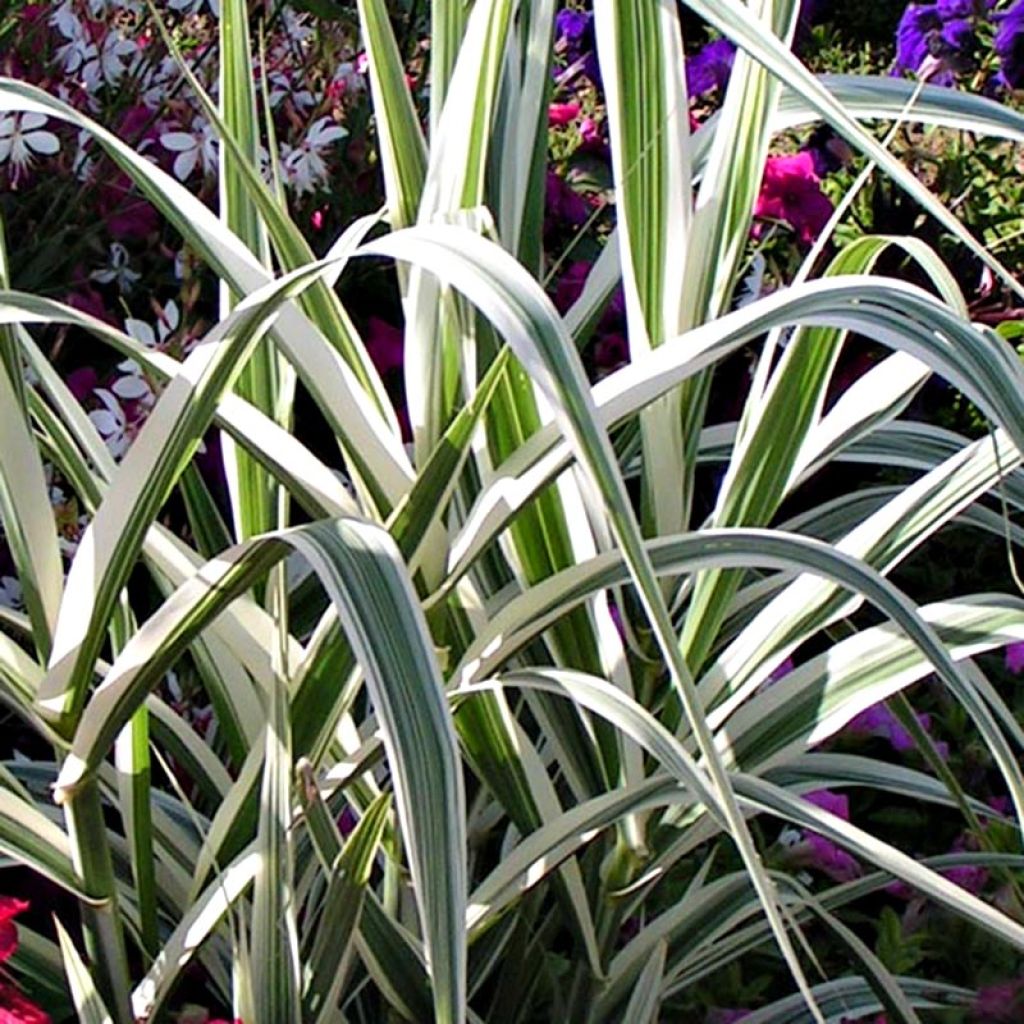

Arundo donax Versicolor
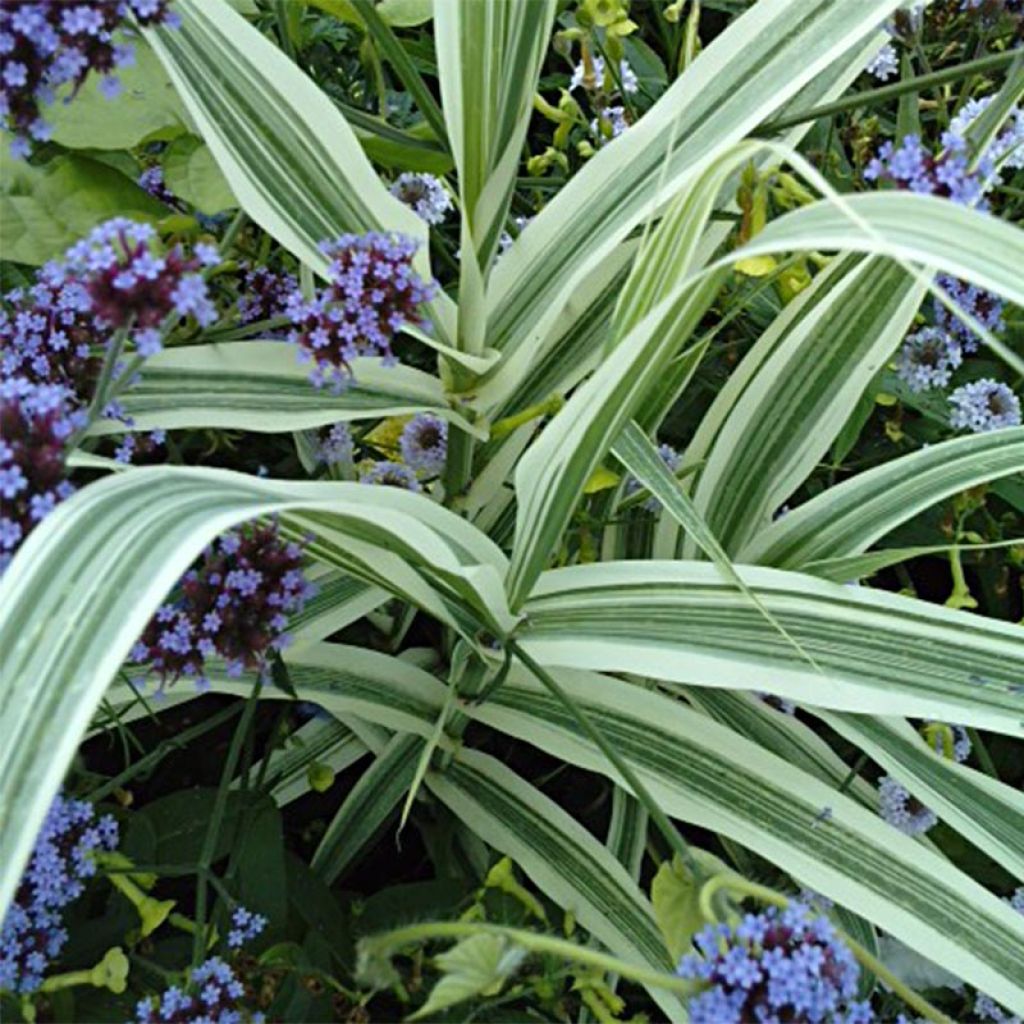

Arundo donax Versicolor
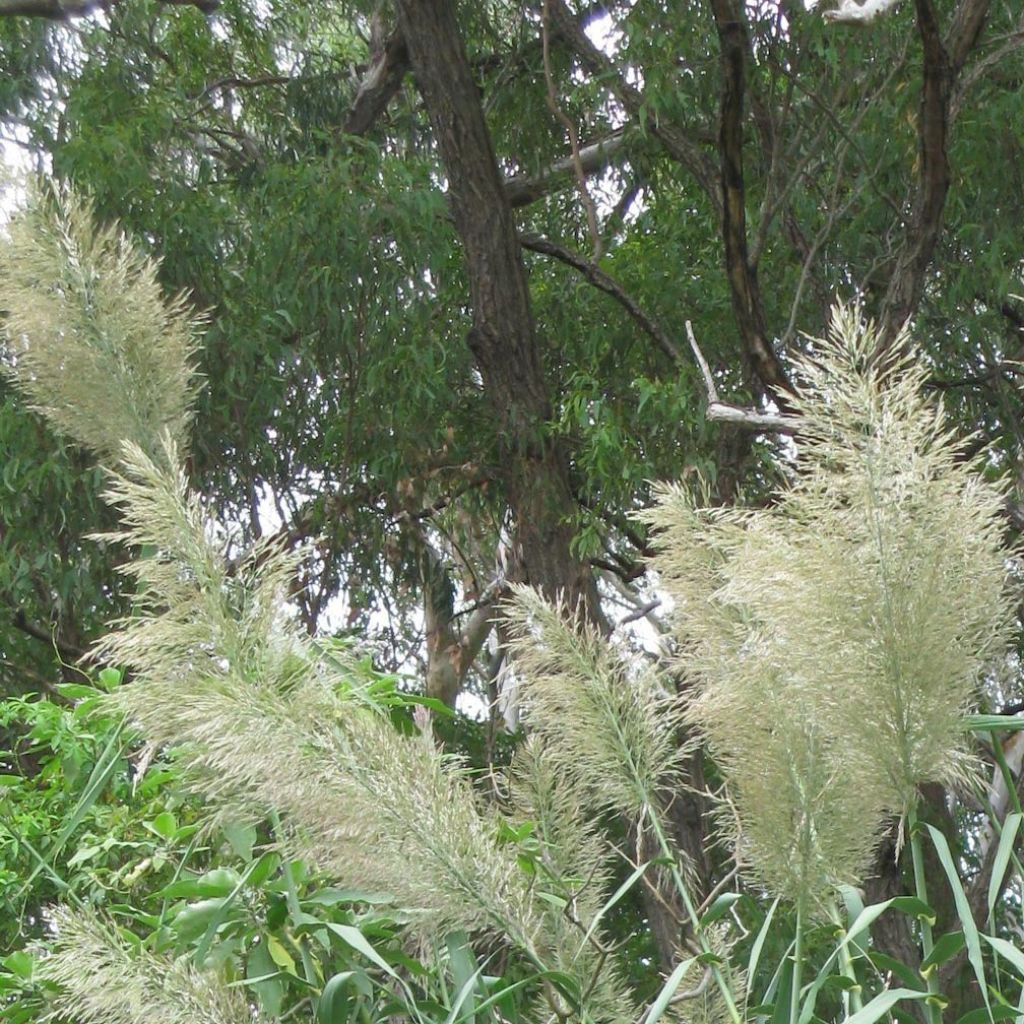

Arundo donax Versicolor
Arundo donax Versicolor
Arundo donax Versicolor
This item cannot be shipped to the selected country
Delivery charge from €5.90
Delivery charge from €5.90
Delivery charge from €5.90
More information
Schedule delivery date,
and select date in basket
This plant carries a 12 months recovery warranty
More information
We guarantee the quality of our plants for a full growing cycle, and will replace at our expense any plant that fails to recover under normal climatic and planting conditions.
From €5.90 for pickup delivery and €6.90 for home delivery
Express home delivery from €8.90.
From €5.90 for pickup delivery and €6.90 for home delivery
Express home delivery from €8.90.
From €5.90 for pickup delivery and €6.90 for home delivery
Express home delivery from €8.90.
Does this plant fit my garden?
Set up your Plantfit profile →
Description
The Arundo Versicolor (synonym Variegata) is a superb variegated form of Provence cane, whose foliage as well as the changing coloured stems are striped with white, silver, light green, cream, or yellow on a green background. This large and intensely bright grass is however less vigorous and slightly less hardy than the typical species, which is widespread in intermittently wet areas of Mediterranean regions. Its characteristic silhouette, which can evoke that of a giant reed or bamboo, is ideal for bringing verticality and volume to a wild or contemporary garden in mild climates.
The Provence cane, also known as variegated giant reed, is a type of grass that grows year after year and belongs to the Poaceae family. It originally came from tropical Asia but can now be found in many warm regions of the world, especially in subtropical climates. It likes to grow in marshes and can be found in sandy or loamy soil, as well as in poor and limestone-rich soils. Variegata cultivar is popular due to its pretty variegated foliage.
The Arundo donax Versicolor, anchored on powerful trailing rhizomes, quickly forms a dense and very upright tuft, composed of woody and robust canes, reaching 3 to 4 cm (1 to 2in) in diameter. These canes can rise up to 2 m (7ft) or 2.50 m (8ft) from the ground, and the shrub expands indefinitely over time. Each cane has long internodes, separated by nodes from which all the leaves grow. The young shoots have pink reflections. These leaves, which somewhat resemble those of corn, are linear, pointed at their tips, sheathed at the base and trailing. The colour of the canes and leaves successively changes from almost white to dark green striped with white-silver and light green, then cream and yellow. The long leaves measure 40 cm (16in) in length by 5 cm (2in) in width and have rough and sharp edges. They are evergreen in mild climates during winter, but deciduous in other regions. The Variegata Provence cane rarely flowers, in late summer, during long and hot summers. It then produces a few rare, fine, and green plume-like panicles over 50 cm (20in) long at the tip of its culms, which turn purplish-brown when ripe. The plant is sensitive to cold during its early years, but once well established, its base can withstand short frosts of around -10°C.
The Variegata Provence cane is a grass that can add elegance to large gardens or contemporary patios. It is less invasive than other types of cane, but is more ornamental. It can be used as a background for a permanent setting, but may be difficult to pair with other plants due to its strong personality and tendency to spread. It is best placed in the back of a bed or near a pond or swimming pool to create a lasting impression. However, it can paired with hardy banana trees or colocasia in an exotic setting.
Report an error about the product description
Flowering
Foliage
Plant habit
Botanical data
Arundo
donax
Versicolor
Poaceae
Arundo donax 'Variegat'
Mediterranean
Other Arundo
Planting and care
Arundo Versicolor is a strong grass that can tolerate temperatures as low as -10/-12°C (14/10.4°F) for short periods. It prefers the sunny and warm Mediterranean climate but can be planted in partial shade in hot climates. The plant has variegated leaves that are sensitive and need cool, rich, and deep soil that doesn't become waterlogged in winter. Once established, it can survive a drought if planted in deep soil, as it has a taproot that seeks water deep down.
The hardiness of the variegated Provence cane improves after 3 to 5 years. In colder regions, it's essential to prune the canes before winter and protect the base with a thick layer of dead leaves. Any unwanted shoots that may appear far from the base should be removed. If necessary, an anti-rhizome barrier should be placed around the base of the Provence cane, as is done with bamboo.
In mild regions, urban gardens, or well-protected enclosed gardens from the cold, the variegated Provence cane is suitable. In cooler areas, the base should be protected with a layer of dead leaves for at least the first 2 to 3 years. However, the cultivation of the plant poses no difficulty in hot climates.
Planting period
Intended location
Care
-
, onOrder confirmed
Reply from on Promesse de fleurs
Aquatic plants
Haven't found what you were looking for?
Hardiness is the lowest winter temperature a plant can endure without suffering serious damage or even dying. However, hardiness is affected by location (a sheltered area, such as a patio), protection (winter cover) and soil type (hardiness is improved by well-drained soil).

Photo Sharing Terms & Conditions
In order to encourage gardeners to interact and share their experiences, Promesse de fleurs offers various media enabling content to be uploaded onto its Site - in particular via the ‘Photo sharing’ module.
The User agrees to refrain from:
- Posting any content that is illegal, prejudicial, insulting, racist, inciteful to hatred, revisionist, contrary to public decency, that infringes on privacy or on the privacy rights of third parties, in particular the publicity rights of persons and goods, intellectual property rights, or the right to privacy.
- Submitting content on behalf of a third party;
- Impersonate the identity of a third party and/or publish any personal information about a third party;
In general, the User undertakes to refrain from any unethical behaviour.
All Content (in particular text, comments, files, images, photos, videos, creative works, etc.), which may be subject to property or intellectual property rights, image or other private rights, shall remain the property of the User, subject to the limited rights granted by the terms of the licence granted by Promesse de fleurs as stated below. Users are at liberty to publish or not to publish such Content on the Site, notably via the ‘Photo Sharing’ facility, and accept that this Content shall be made public and freely accessible, notably on the Internet.
Users further acknowledge, undertake to have ,and guarantee that they hold all necessary rights and permissions to publish such material on the Site, in particular with regard to the legislation in force pertaining to any privacy, property, intellectual property, image, or contractual rights, or rights of any other nature. By publishing such Content on the Site, Users acknowledge accepting full liability as publishers of the Content within the meaning of the law, and grant Promesse de fleurs, free of charge, an inclusive, worldwide licence for the said Content for the entire duration of its publication, including all reproduction, representation, up/downloading, displaying, performing, transmission, and storage rights.
Users also grant permission for their name to be linked to the Content and accept that this link may not always be made available.
By engaging in posting material, Users consent to their Content becoming automatically accessible on the Internet, in particular on other sites and/or blogs and/or web pages of the Promesse de fleurs site, including in particular social pages and the Promesse de fleurs catalogue.
Users may secure the removal of entrusted content free of charge by issuing a simple request via our contact form.
The flowering period indicated on our website applies to countries and regions located in USDA zone 8 (France, the United Kingdom, Ireland, the Netherlands, etc.)
It will vary according to where you live:
- In zones 9 to 10 (Italy, Spain, Greece, etc.), flowering will occur about 2 to 4 weeks earlier.
- In zones 6 to 7 (Germany, Poland, Slovenia, and lower mountainous regions), flowering will be delayed by 2 to 3 weeks.
- In zone 5 (Central Europe, Scandinavia), blooming will be delayed by 3 to 5 weeks.
In temperate climates, pruning of spring-flowering shrubs (forsythia, spireas, etc.) should be done just after flowering.
Pruning of summer-flowering shrubs (Indian Lilac, Perovskia, etc.) can be done in winter or spring.
In cold regions as well as with frost-sensitive plants, avoid pruning too early when severe frosts may still occur.
The planting period indicated on our website applies to countries and regions located in USDA zone 8 (France, United Kingdom, Ireland, Netherlands).
It will vary according to where you live:
- In Mediterranean zones (Marseille, Madrid, Milan, etc.), autumn and winter are the best planting periods.
- In continental zones (Strasbourg, Munich, Vienna, etc.), delay planting by 2 to 3 weeks in spring and bring it forward by 2 to 4 weeks in autumn.
- In mountainous regions (the Alps, Pyrenees, Carpathians, etc.), it is best to plant in late spring (May-June) or late summer (August-September).
The harvesting period indicated on our website applies to countries and regions in USDA zone 8 (France, England, Ireland, the Netherlands).
In colder areas (Scandinavia, Poland, Austria...) fruit and vegetable harvests are likely to be delayed by 3-4 weeks.
In warmer areas (Italy, Spain, Greece, etc.), harvesting will probably take place earlier, depending on weather conditions.
The sowing periods indicated on our website apply to countries and regions within USDA Zone 8 (France, UK, Ireland, Netherlands).
In colder areas (Scandinavia, Poland, Austria...), delay any outdoor sowing by 3-4 weeks, or sow under glass.
In warmer climes (Italy, Spain, Greece, etc.), bring outdoor sowing forward by a few weeks.


































